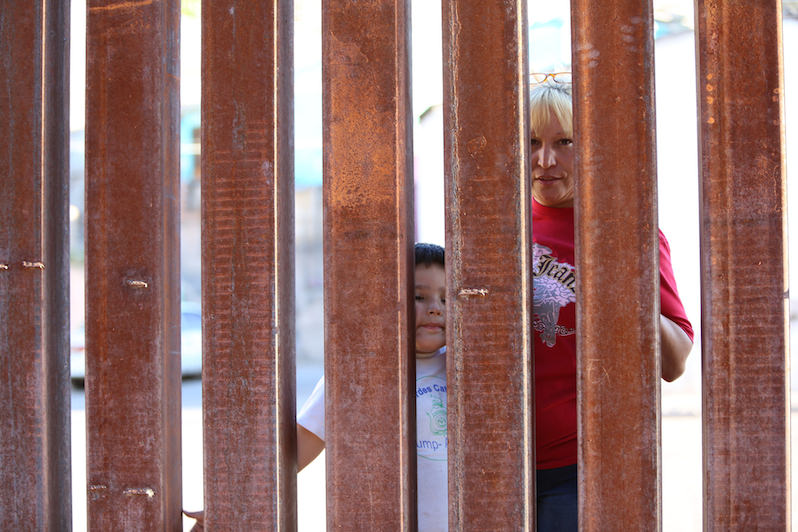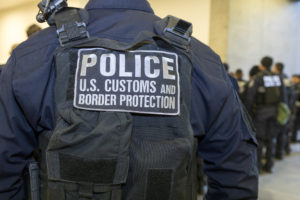Trump Administration Weighs Separating Mothers From Children at the U.S.-Mexico Border
Parents could be kept in custody during deportation or asylum hearings, while children would be removed to another setting. The U.S.-Mexico border in Nogales, Ariz. (Flickr / CC 2.0)
The U.S.-Mexico border in Nogales, Ariz. (Flickr / CC 2.0)
By Nika Knight / Common Dreams
As the Trump administration continues its mass deportations apace, the Department of Homeland Security (DHS) is considering ramping up anti-immigration policies even further with a new rule that would separate mothers from their children at the U.S.-Mexico border.
That’s according to Reuters, which cites three unnamed government officials who had been briefed on the proposal intended “to deter mothers from migrating to the United States with their children.”
Reuters reports:
The policy shift would allow the government to keep parents in custody while they contest deportation or wait for asylum hearings. Children would be put into protective custody with the Department of Health and Human Services, in the “least restrictive setting” until they can be taken into the care of a U.S. relative or state-sponsored guardian.
Currently, families contesting deportation or applying for asylum are generally released from detention quickly and allowed to remain in the United States until their cases are resolved. A federal appeals court ruling bars prolonged child detention.
President Donald Trump has called for ending “catch and release,” in which migrants who cross illegally are freed to live in the United States while awaiting legal proceedings.
Such a policy “could create lifelong psychological trauma,” Marielena Hincapie, executive director at the National Immigration Law Center, told Reuters. “Especially for children that have just completed a perilous journey from Central America.”
On social media, politicians, rights advocates, celebrities, and others immediately voiced outrage and dismay:
Trump administration considering separating women & children at Mexico border. Vicious, ugly, cruel. https://t.co/itKpCowyQB pic.twitter.com/5Bf7C8dEUM
— Andrew Stroehlein (@astroehlein) March 4, 2017
No possible justification for this cruel & heartless proposal. https://t.co/gv9qrARWQa
— Senator Patty Murray (@PattyMurray) March 4, 2017
Even Sophie got to keep one kid. https://t.co/TDGXphWMLd
— Full Frontal (@FullFrontalSamB) March 4, 2017
This cruel policy could cause lifelong psychological trauma to kids. To even consider it is immoral. https://t.co/xudxJc5tI1 #immigration
— Nat’l Imm Law Center (@NILC_org) March 3, 2017
Your support matters…This is the country Trump wants us to become, one that breaks apart families. Not on our watch, sir. Not on ours. https://t.co/eNYsMB7lwx
— George Takei (@GeorgeTakei) March 3, 2017
Independent journalism is under threat and overshadowed by heavily funded mainstream media.
You can help level the playing field. Become a member.
Your tax-deductible contribution keeps us digging beneath the headlines to give you thought-provoking, investigative reporting and analysis that unearths what's really happening- without compromise.
Give today to support our courageous, independent journalists.






You need to be a supporter to comment.
There are currently no responses to this article.
Be the first to respond.